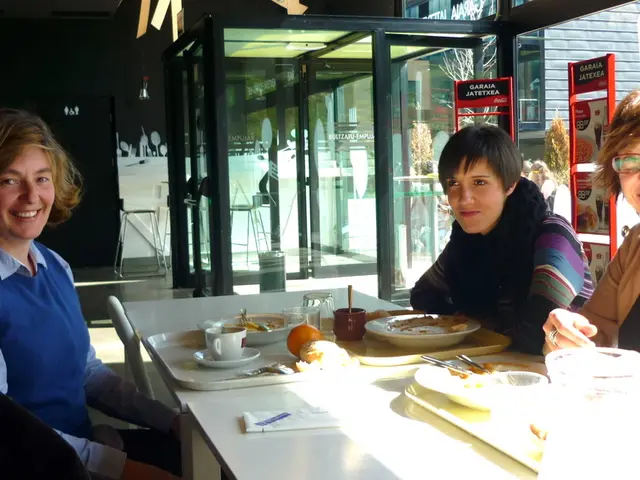Shops in Estonia may halt operations by 8:00 PM as a means to boost the nation's economy.
In the face of a significant decrease in purchasing power, retail stores in Estonia are exploring new ways to reduce costs. The proposed measures, which include closing stores at 20:00, could potentially impact operational hours.
The excess retail space in Estonia, which is significantly more than the European average, has been linked to higher retail prices by the Estonian Prime Minister. Closing stores earlier might help reduce operating costs related to extended hours and contribute to addressing this issue. However, it's important to note that this measure alone may not significantly impact overall retail prices or the economy, as other factors such as food costs and broader economic conditions also play crucial roles.
Kristel Mets, the head of the Rimi Eesti chain, believes that reducing the working day in stores will lower staff costs. This could lead to retail outlets organizing shifts for employees in a new, more profitable way due to the proposed change.
Some retailers, however, reject the claim that excess store space drives food price inflation. They argue that while costs affect prices, having many stores is not the main driver. Economists also argue that rent and space costs are not large enough alone to justify high inflation in food prices.
If implemented, shorter store hours could potentially reduce labor and utility expenses for retailers, easing cost pressures. It might also allow consumers and workers to have more balanced time, possibly benefiting well-being, although this has less direct economic measurement.
However, limiting store hours could also reduce consumer convenience, potentially affecting retail sales volume and employment hours in the sector. The impact on the economy depends on consumer adaptation and whether spending shifts to other times or channels, such as online shopping.
Estonia faces structural economic challenges, including a retail sector with large floor space, ongoing inflation factors, and the integration of refugee labor. Changes in retail operation hours would be one of many variables influencing the economy.
In summary, while closing stores at 20:00 could modestly reduce some costs and contribute to managing oversupply of retail space, potentially easing some upward pressure on prices, this measure alone is unlikely to produce large economic benefits or solve inflation in the retail sector without broader structural adjustments.
[1] European Commission (2020). Retail in Estonia. https://ec.europa.eu/eurostat/web/retail-trade/data/database [2] Mets, K. (2021). Interview with Estonian Public Broadcasting. https://www.err.ee/1093504/rimi-eesti-keskkonnapoliitikas-kristel-mets-ja-eesti-kaubandus-on-kokku-kokku-sotsiaalikonna-probleemiks [4] Government of Estonia (2021). Economic Development Plan 2035. https://www.government.ee/en/article/economic-development-plan-2035
- The Estonian Prime Minister has linked the excess retail space in Estonia, which is more than the European average, to higher retail prices, suggesting that reducing operational hours might help address this issue by cutting costs related to extended hours.
- In the retail sector, which faces structural economic challenges, changes such as reducing working hours could potentially reduce labor and utility expenses, contributing to managing oversupply of retail space and easing some upward pressure on prices. However, it's crucial to remember that this measure is only one of many variables influencing the economy, and broad structural adjustments may be needed for significant economic benefits.




